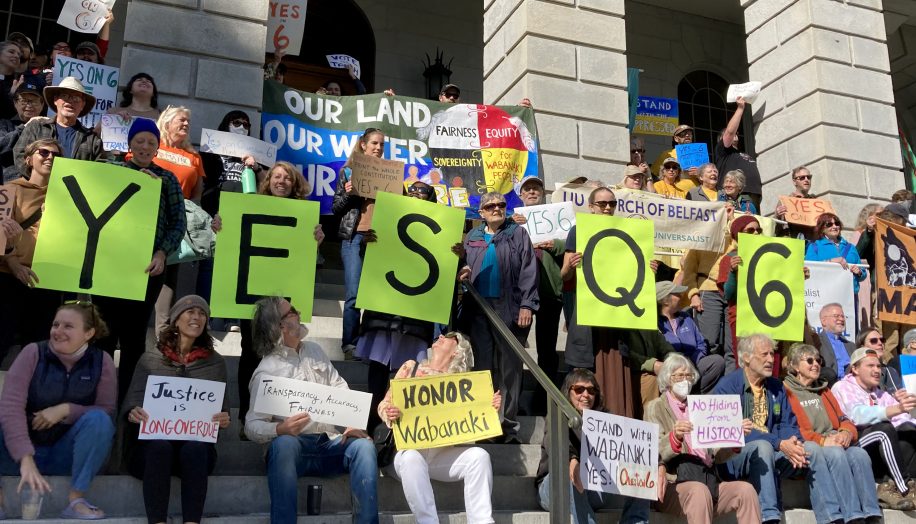
- Details
- By DAN NEUMANN, Maine Beacon
Last week, 73 percent of Mainers voted in favor of Question 6, a referendum question that the tribes say make clearer Maine’s treaty obligations to Maine’s Indigenous people.
This article was originally published in the Maine Beacon.
The Maine Constitution will now be printed in full for the first time since 1875.
“I’m appreciative that Mainers agreed to support our shared history,” Penobscot Nation Ambassador Maulian Bryant said in a statement. “The passage of Question 6 honors the legacy of our tribal ancestors. It brings about truth and transparency for all Mainers.”
She added, “The passage of Question 6 is important to our overall work towards increased recognition of tribal nations’ inherent sovereignty and self-determination.”
Question 6 asked whether voters support requiring “that all of the provisions of the Maine Constitution be included in the official printed copies” distributed by the state.
The tribes supported the ballot measure because, since 1876, printed copies of Maine’s Constitution have omitted three sections of the original document, including one pertaining to Maine’s treaty obligations toward the tribes.
In 1820 when Maine separated from the Commonwealth of Massachusetts and became a state, its new Constitution included Article X, Section 5 that said:
“The new State shall, as soon as the necessary arrangements can be made for that purpose, assume and perform all the duties and obligations of this Commonwealth, towards the Indians within said District of Maine, whether the same arise from treaties, or otherwise…”
Tribes note that this is the only section of Maine’s Constitution that mentions the “duties and obligations” Maine inherited as regards the Wabanaki people within its borders. In 1876, the Constitution was amended to remove that language from printed copies.
During Indigenous Peoples Day last month, hundreds of Mainers joined members of the Wabanaki Alliance at a rally at the State House on Indigenous People’s Day to support Question 6.
“Whatever the reason is for taking those out of print, now is the time to restore it,” Bryant, who is the president of the Wabanaki Alliance, said at the rally.
These stories must be heard.
This May, we are highlighting our coverage of Indian boarding schools and their generational impact on Native families and Native communities. Giving survivors of boarding schools and their descendants the opportunity to share their stories is an important step toward healing — not just because they are speaking, but because they are being heard. Their stories must be heard. Help our efforts to make sure Native stories and Native voices are heard in 2024. Please consider a recurring donation to help fund our ongoing coverage of Indian boarding schools. Donate to Native News Online today and support independent Indigenous-centered journalism. Thank you.
